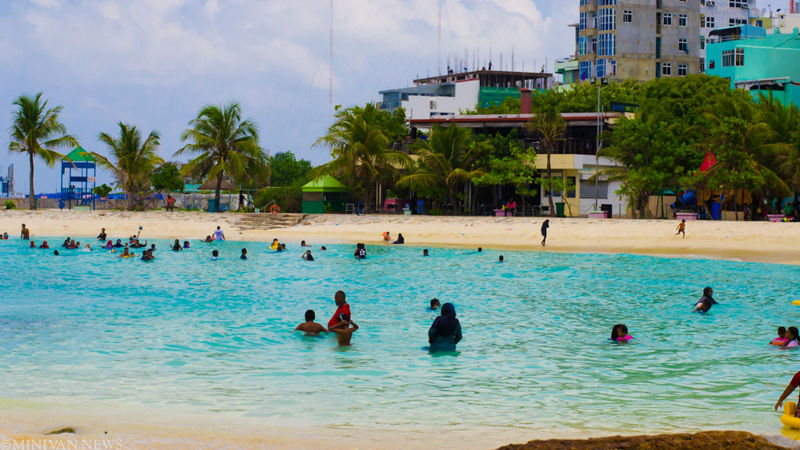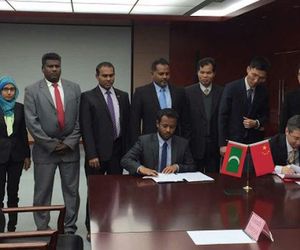Report warns of negative environmental impact of developing artificial beach in Malé
The development of an artificial beach in Malé’s western waterfront could cause long-term water pollution, reef slope failure, and damage the coastline, the Environmental Impact Assessment (EIA) report of the project has warned.

12 Sep 2015, 09:00
The development of an artificial beach in Malé’s western waterfront could cause water pollution, reef slope failure, and damage the coastline, an Environmental Impact Assessment (EIA) report has warned.
The report released by the Environmental Protection Agency last week noted that although the project would create more public space for recreation in the congested capital, it would have several long-term negative effects on the environment.
Malé’s west coast has been “free from direct human influence” to date, the report noted, but the development project currently underway has “the potential to cause damage to reefs and reef ecological system,” causing loss in organisms due to mortality and forced migration.
The ministry of housing and infrastructure awarded the MVR40 million (US$2.5 million) project to the state-owned Maldives Transport and Contracting Company (MTCC) on August 24. The area is planned to be developed with a recreational area, fishing pier, waterfront pavilion, beachfront park, waterfront promenade, underground parking facility, cafés, dive spots, waterfront residential mix, and a fort.
Become a member
Get full access to our archive and personalise your experience.
Already a member?
Discussion
No comments yet. Be the first to share your thoughts!
No comments yet. Be the first to join the conversation!
Join the Conversation
Sign in to share your thoughts under an alias and take part in the discussion. Independent journalism thrives on open, respectful debate — your voice matters.




